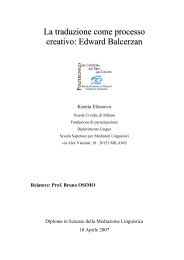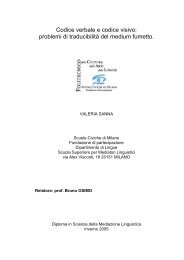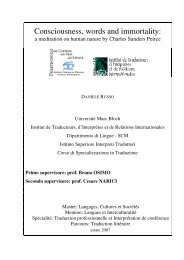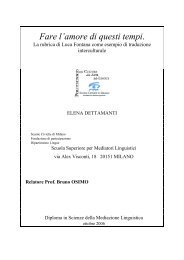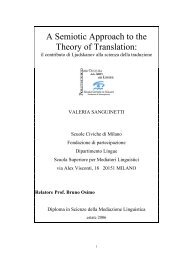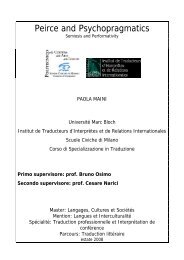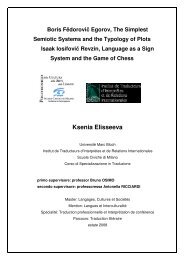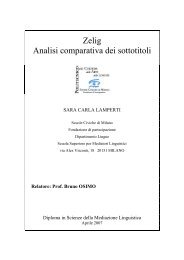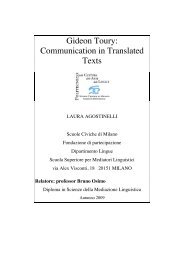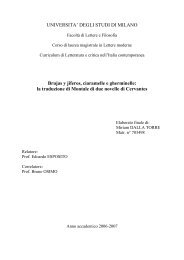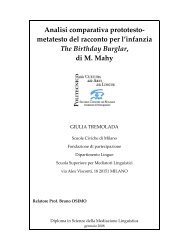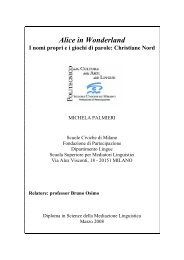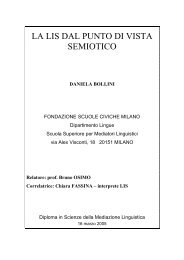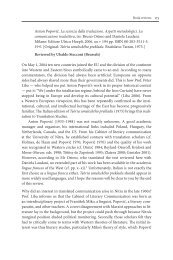Relatore: Professor Bruno OSIMO - Bruno Osimo, traduzioni ...
Relatore: Professor Bruno OSIMO - Bruno Osimo, traduzioni ...
Relatore: Professor Bruno OSIMO - Bruno Osimo, traduzioni ...
Create successful ePaper yourself
Turn your PDF publications into a flip-book with our unique Google optimized e-Paper software.
translations. Jensen (2000) and Jääskeläinen looked at the influence of routine<br />
vs. non-routine tasks on task performance and investigate the differences<br />
between professionals and laymen. Künzli (2003) explored the impact of<br />
emotional and affective states on subjects’ performance.<br />
Some researchers in Denmark proposed including methods of logging the<br />
writing process during translation to develop and corroborate data collected<br />
by means of TAP. Their studies point towards a possible design combining<br />
different analyzing methods that could be able to elicit and evaluate data<br />
telling us more about the complex structures that govern the translation<br />
process (Schmidt 2005).<br />
The list of TAP studies presented above shows that it exists a<br />
heterogeneous group of investigations. In fact, the first process-oriented<br />
research projects started in isolation, independently of each other; therefore<br />
they reflect very different translation theoretical frameworks ad research aims.<br />
Furthermore, in the absence of previous research, methods of analysis<br />
have been developed to describe a particular body of data. As a result,<br />
applying the methods of analysis to other kinds of data has, as a rule,<br />
resulted in modifications or in the introduction of new methods of<br />
analysis (Jääskeläinen 1999: 46).<br />
On the whole, the presence of different researches has the advantage to<br />
shed light on different aspects of different kinds of translation processes. This<br />
increases our understanding of the complex mechanisms underlying<br />
translation. “Indeed the great variety of TAP approaches has highlighted the<br />
fact that ‘the’ translation process does not exist; instead, there are many<br />
different translation processes which are the outcome of many kinds of<br />
factors. However, the differences in the kinds of data collected, analyses<br />
carried out, and the overall goals of research have made it more difficult to<br />
test the methods employed in previous experiments.<br />
25



